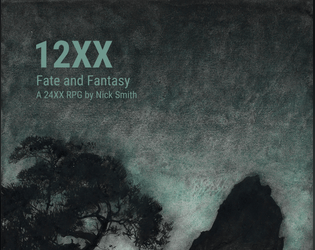No worries, happy to answer any questions you may have!
As written an HP increase via advancement gives a player 3 additional HP. This is represented by the fact that their HP thresholds change. For the first HP increase, their maximum HP (AKA the "Intact" HP threshold) goes from 6 to 9. The threshold for "Injured" goes from 4 to 6. Finally, the threshold for "Fading" goes from 2 to 3. This is the +3/+2/+1 you refer to. On subsequent HP increases, the same pattern applies (next would be 12 for Intact, 8 for Injured, 4 for Fading).
Again, this may or may not be changed in the future for balancing purposes, further playtesting on my part needs to be done to see if this system operates in the way that I want. Also, if a group decides they want to change this system for their game they are highly encouraged to do so! Play the game how you and your friends want to!


